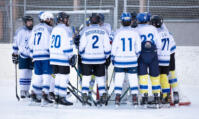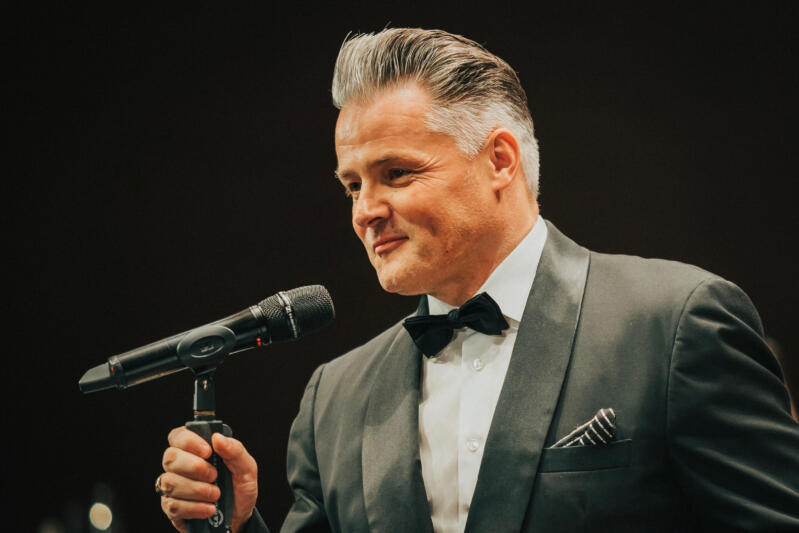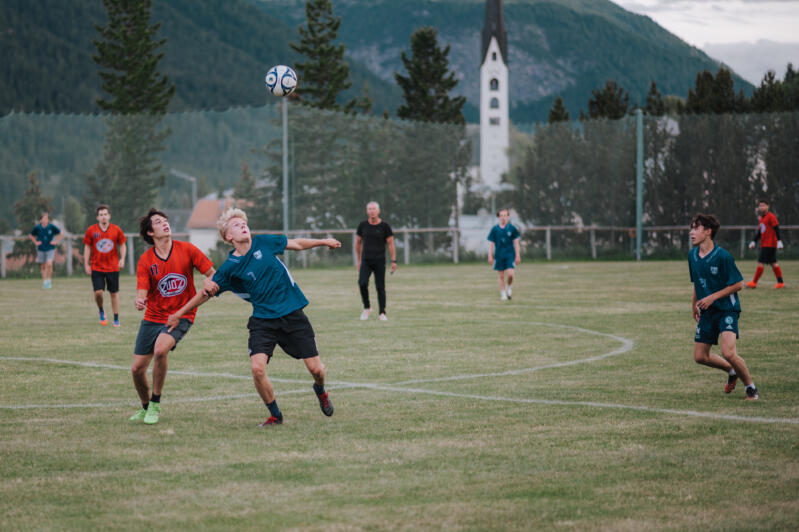Jeffrey Fasegha stands open-mouthed and wide-eyed on the ice field at the Lyceum Alpinum. “Breathtaking,” he says in amazement. The coach and also captain of the Oxford ice hockey team is in Engadin for the first time. The 25-year-old Canadian continues a long tradition in the team of the “Blues”, as the team is called. “The best Canadians used to play outside of Canada,” Fasegha said. “Playing outdoors is sensational for us”, Cambridge coach Greg Babbitt also emphasises. Both teams completed their training camps for a week in Zuoz.
The myth of the Spengler Cup
In the 1920s, the destinations in the Upper Engadine and Davos were regarded as strongholds of winter sports. “There was no artificial ice in England back then,” says Patrick Steger, looking back on the conditions in England at the time.
Steger is a former student and staff member of the Lyceum Alpinum and still active today in the Old Boys Zuoz team. “The good ice conditions were one reason why British athletes came to the Engadin.” It was also here that the first ice hockey game in mainland Europe took place in 1885. The two teams from the elite universities of Oxford and Cambridge faced each other on frozen Lake St. Moritz for the first time back then. In 2018, they played the 100th game again in St. Moritz. From 1909 to 1931, excluding the years during World War I, the prestigious Games were held regularly in Switzerland. Wengen, Murren and St. Moritz were the venues. 1923 was also the birth of the Spengler Cup in Davos. In the final, Berlin SC and the Oxford team faced each other. Oxford won the first Spengler Cup. Later, three more overall victories were achieved in Davos. “In Oxford, everyone knows this story,” says coach Jeffrey Fasegha.
Team building is also part of it
“The intensive week is very valuable for us,” says Cambridge coach Greg Babbitt. In addition to athletic preparation, it is also about team building. “We explore the surroundings, take advantage of the ice trail in Zuoz and enjoy the unique landscape.” Complementing this, the Oxford coach adds that contact with the students of the Lyceum Alpinum is also important. “The players of both teams are available for questions about studying at Oxford or Cambridge.”
Since the end of the 1990s, the teams from Cambridge and Oxford have come to Zuoz each January. “The initiative came from a former student who studied in Cambridge after graduating from Lyceum Alpinum in 1994,” says Steger. Shortly thereafter, the idea of a tournament, as it still takes place today, was also born.

Oxford at the next Spengler Cup?
The tournament in Zuoz was held for the 20th time. The Spengler Cup is also celebrating an anniversary in 2023. The first edition took place 100 years ago. Patrick Steger and the team of responsible staff of the Lyceum Alpinum are already active. “We are in contact with Davos and Oxford,” says Steger. For him, it is clear that the first winner of 1923 should be invited to Davos in December. Of course, chances of winning in Davos are small, Steger says. “but it would be amazing to have Oxford participating.”

Oxford scores a clear victory
The 2023 test match saw a clear winner. Despite the friendly atmosphere, the ambitions of both teams, could be felt from the start “This is true rivalry”, says Steger. Even though it is not yet the official game, says Fasegha of the Blues, “it’s still much more than just a normal test match.” In the official game, known as the Varsity Match, the winner has been Cambridge nine times in the past 12 years. The Cambridge coach made the importance of the “Varsity Match” clear once again. “The test match here in Zuoz is important, but more important is that we win against Oxford in March.” For then the 106th edition of the classic will take place.




